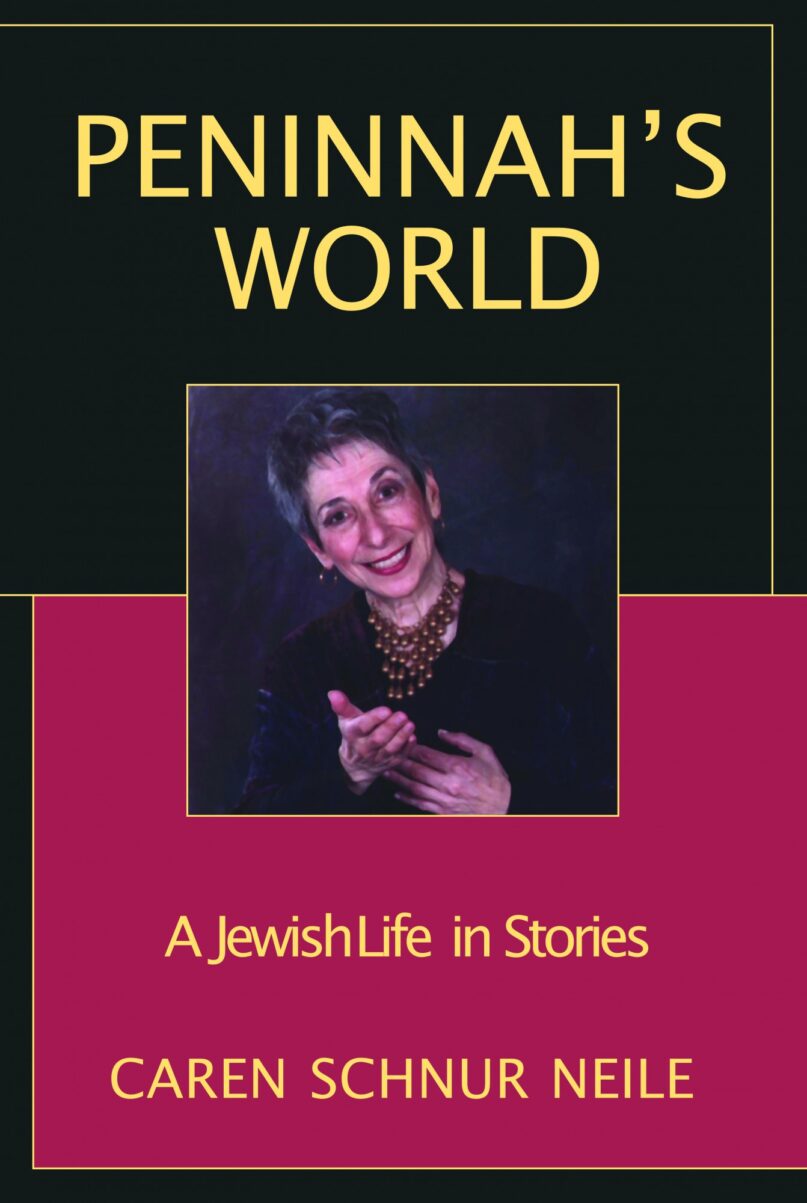
Reviewed by Jack Riemer
Elie Wiesel once said: “I love stories. And I think that God must love stories too, for otherwise, why did He create human beings? Was He short of aggravation? Did He not know that human beings would steal and lust and fight? God created human beings nevertheless because if there were no human beings, there would be no stories, and if there were no stories, how dull and boring God’s life would be.”
I cite this comment as a tribute to Peninnah Schram, who is the doyenne of Jewish storytelling of our time, and who is the subject of this biography. Peninnah taught the art of Jewish storytelling for many years at Stern College, and she toured the country from coast to coast telling Jewish stories at colleges and synagogues, at Jewish Centers and at the regional and national conventions of storytellers. And so, she well deserves this biography that records the story of how she came to be the icon and the role model that she is to so many storytellers and to so many students of the Jewish tradition that she is today.
This book is different from the standard biographies in that it is written in the form of stories instead of in a straightforward factual way. I love these stories, not only because this is such an appropriate way in which to honor a storyteller, but because each of these stories expresses a value that is crucial to understanding the spirit in which Peninah Schram has lived.
For example, the first chapter begins with the moment when her mother awakens her husband in the middle of the night and tells him that she thinks it is time to go to the hospital to give birth. She calls him “chazen” when she wakes him, for even in moments of crisis or excitement, she could never forget that she had married a distinguished man of God.
Chazan Manchester awakes and dresses and calls the babysitter, Elizabeth, who is to take care of their first born son, Joseph, while they are at the hospital. And as he waits for her to arrive, he thinks back and remembers his parents who raised him back in Europe, who are no longer alive and who will not be able to share in this joy. He thinks of his father, who trained him to be a chazen, a mohel and a shochet, and who always wrote to him from Europe with such great respect.
And then he does one more thing. He goes to the bookcase and pulls down the family Bible, and thumbs through its pages until he finds the reference that he is looking for. He underlines a word on this page and puts a piece of paper on it, and then he takes the suitcase that has been standing by the door for many days now, and he slowly and carefully takes his wife to the car so that he can drive her to the hospital.
Hours go by until the babysitter finally gets a call from Chazen Manchester. He asks her to take out the family Bible and find the page in it that he has marked with a piece of paper. And then he asks her to tell him exactly how to spell the word that he has underlined in the English translation.
The babysitter tells him that the word is “Peninnah” and that it has three ’n’s in it, and that is how she learns that it is a girl that has been born. The babysitter knows that she should let him get back to his wife and baby, but she feels that she has to ask him just one question.
She asks him: “Does this word have a meaning, sir?”
And he says: “Yes, it does. In Hebrew it means a pearl. My mother’s name was Peninnah and so it will be hers.”
“You must miss your parents very much very much, Reverend,” said Elizabeth.
“More than you can imagine, Elizabeth, more than you can imagine.” And with that, the chazen gently hangs up the telephone and goes to be with his wife and his newborn child.
Isn’t that a much more meaningful way of introducing Peninnah Schram that with just a prosaic statement that she was born on such and such a date in such and such a place, which is the way most biographies would begin?
And this is the way this biography continues. It tells us what it felt like for this little girl to go to school for the first time, what it felt like for her to perform on the piano in public for the first time, what it felt like for her to leave home and go off to the big city in order to go to college, and all the other steps in her career. And we are caught up in the drama of these events and they give us a glimpse not only into the facts of her life but into the emotions that she experienced as she went through each one.
How fitting to have stories that tell the story of a great storyteller.
This is a book that will capture the interest of all those who love stories, and especially those who want to learn the lessons in how to live a good life that are found in Jewish stories.
Rabbi Jack Riemer is the author of six books of Jewish thought, including his most recent books, Finding God in Unexpected Places and The Day I Met Father Isaac at the Supermarket. Penning’s World: A Jewish Life in Stories by Caren Schnur Neile, is available at amazon.com ($26.99)








 Southern New England Jewish Ledger
Southern New England Jewish Ledger










